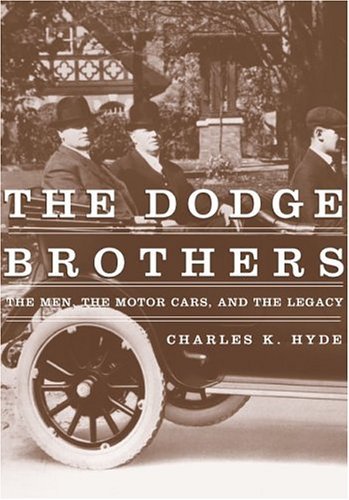The Dodge Brothers: The Men, the Motor Cars, and the Legacy
$36.99
Please select all options.
"The Dodge Brothers: The Men, the Motor Cars, and the Legacy"
by Dr. Charles K. Hyde
At the start of the Ford Motor Company in 1903, the Dodge Brothers supplied nearly every car part needed by the up-and-coming auto giant. After fifteen years of operating a successful automotive supplier company, much to Ford's advantage, John and Horace Dodge again changed the face of the automotive market in 1914 by introducing their own car. The Dodge Brothers automobile carried on their names even after their untimely deaths in 1920, with the company then remaining in the hands of their widows until its sale in 1925 to New York bankers and subsequent purchase in 1928 by Walter Chrysler. The Dodge nameplate has endured, but despite their achievements and their critical role in the early success of Henry Ford, John and Horace Dodge are usually overlooked in histories of the early automotive industry.
Charles K. Hyde's book The Dodge Brothers: The Men, the Motor Cars, and the Legacy is the first scholarly study of the Dodge brothers and their company, chronicling their lives-from their childhood in Niles, Michigan, to their long years of learning the machinist's trade in Battle Creek, Port Huron, Detroit, and Windsor, Ontario-and examining their influence on automotive manufacturing and marketing trends in the early part of the twentieth century. Hyde details the brothers' civic contributions to Detroit, their hiring of minorities and women, and their often anonymous charitable contributions to local organizations. Hyde puts the Dodge brothers' lives and accomplishments in perspective by indicating their long-term influence, which has continued long after their deaths.
The most complete and accurate resource on John and Horace Dodge available, The Dodge Brothers uses sources that have never before been examined. Its scholarly approach and personal tone make this book appealing for automotive historians as well as car enthusiasts and those interested in Detroit's early development.
Hardcover: 272 pages



